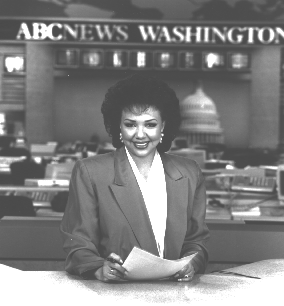Page 137
[Begin Tape 1, Side A]
Moorhus: We want to talk today about your work on "20/20" and "Nightline." One of the stories that you did on "Nightline" that is particularly timely this week* is your trip to South Africa and your coverage of Nelson Mandela's release from prison.
Simpson: That was for "Nightline," not "20/20."
Moorhus: Right. For "Nightline."
Simpson: Did you say that?
Moorhus: I think I said that. [Laughter.]
Simpson: Okay. I wasn't sure that's what you said.
Yes, and I have been so torn this week, because I wanted to go back and be there to see this wonderful change take place, but I also was terrified to go back because of my experience there four years ago. I was hoping ABC would not ask me to go, because I didn't want to have to be put in the position of saying no, which I think I would have had to say, because it is still too painful and frightening to me.
Moorhus: Start at the beginning about how that happened, how you got sent there four years ago, what the story was, and then what happened.
Simpson: I was in California shooting a story. I don't typically work for "Nightline;" I'm not one of Ted Koppel's favorite people. I was in California shooting "American Agenda" and got a call from Paul Friedman, the executive producer of "World News Tonight" saying, "Carole, I know you're shooting something for my broadcast, but Roone Arledge has called and they want you to leave immediately for South Africa. Drop your story, come back, pack, and get on the quickest plane that you can to South Africa."
And I'm going, "What?" This is kind of like what this job is, that you never know exactly what you're going to be doing. It turned out that "Nightline" had gone to South Africa in 1985, and now with prospect of Nelson Mandela coming out of jail, because [F.W.] de Klerk, the new president, had seemingly a different attitude, they wanted to go back and see how much progress had been made in the five years since they had left.
So they apparently had put together the entire team of people that were going to go to report, and had no black reporter. They were sending a virtually all-white crew. There was a
______________________ * The first free, democratic elections in South Africa in which all citizens could vote were held April 26-30, 1994. Nelson Mandela was elected president by a newly elected parliament.

